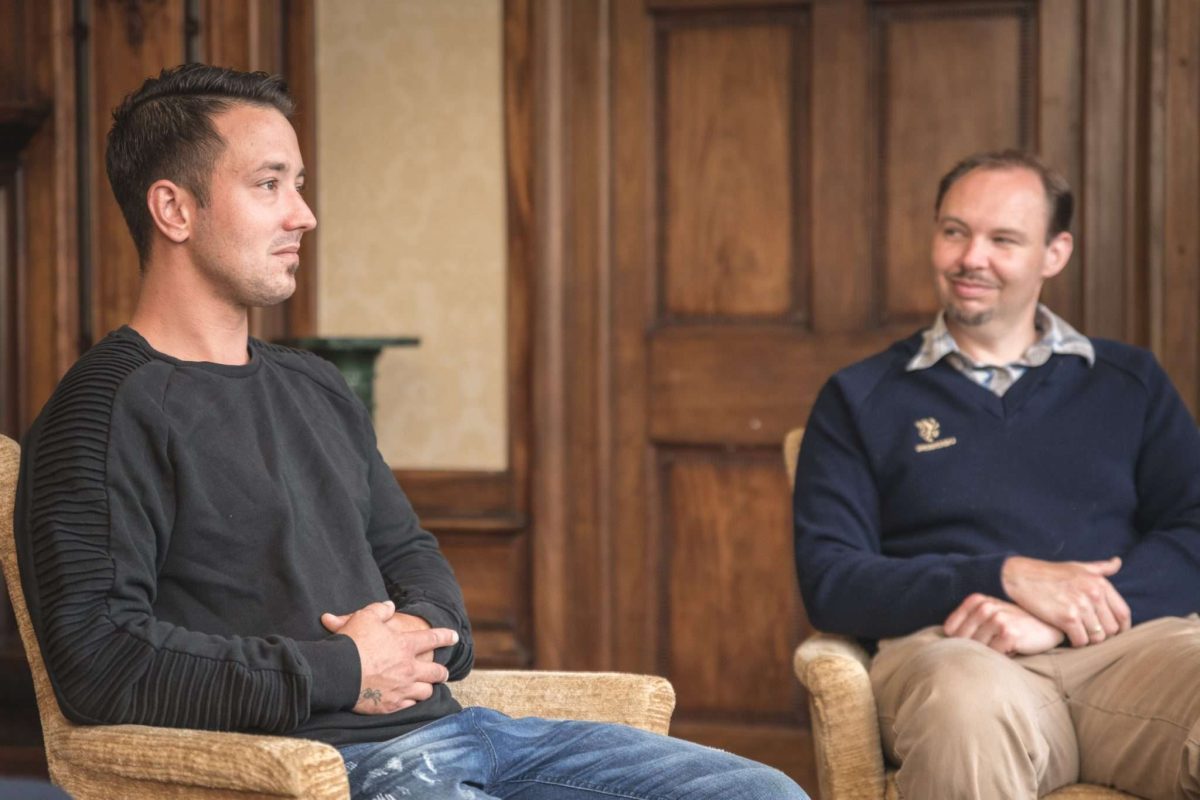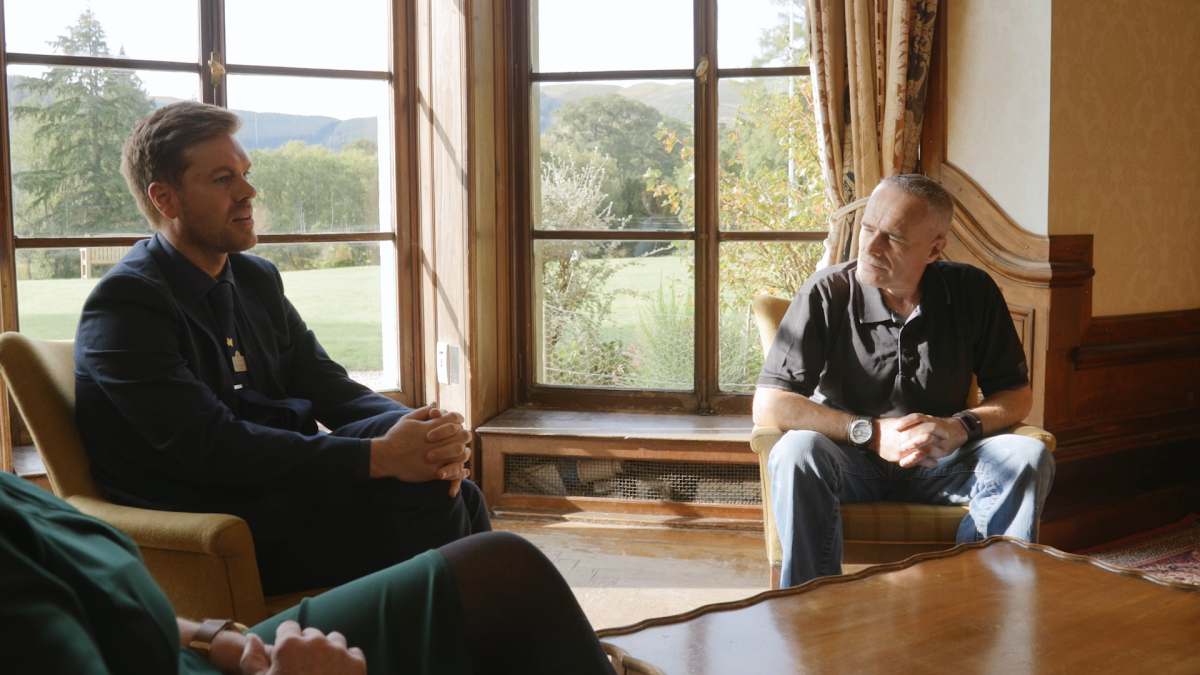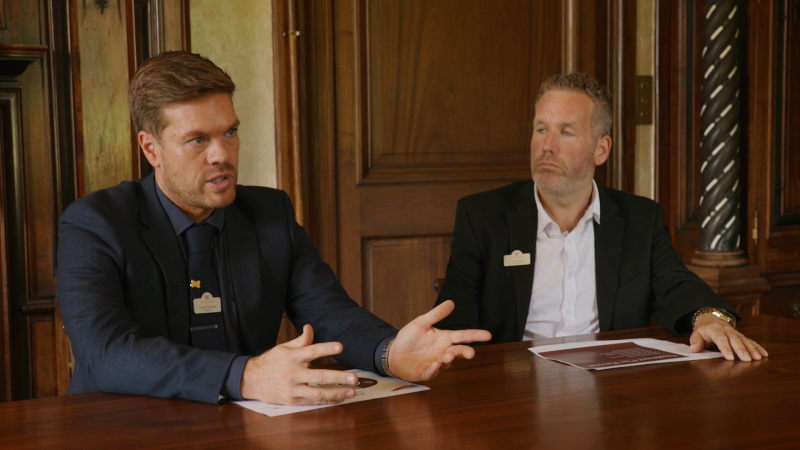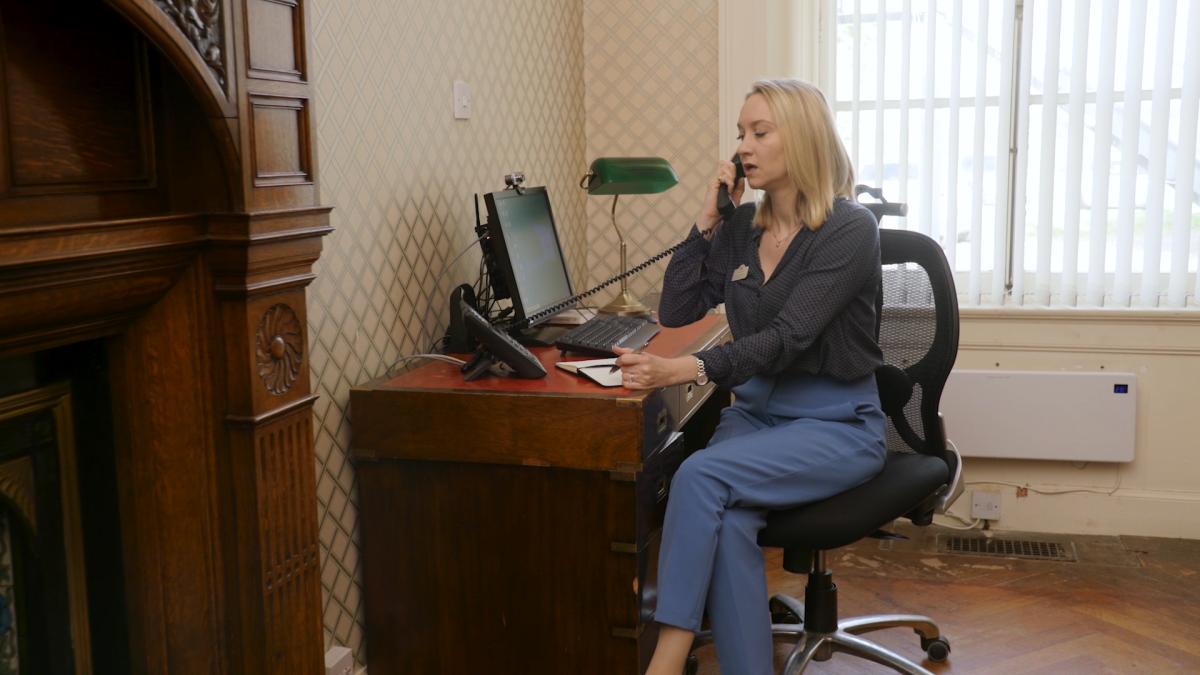
Meeting the Needs of Military Veterans
As a veteran, your life has been marked by courage, sacrifice, and dedication to serving your country. But behind the valour, there may also be shadows — battles fought within, unseen scars, and as a result, struggles with addiction and psychological problems. You’re not alone. At Castle Craig, we understand the unique challenges you’re facing and the profound impact they can have on your life.
Veterans like you often face various mental health issues such as post-traumatic stress disorder (PTSD), depression, anxiety, and sometimes thoughts of suicide, thus turning to alcohol or drugs as a way to cope. Because the transition from the battlefield to civilian life can be daunting, taking the road to recovery might seem difficult. However, it’s essential to recognise that seeking help is not a sign of weakness, but a courageous step towards reclaiming your life. And Castle Craig is here to support you every step of the way.
Why Veterans Need Special Treatment for Addiction
As someone who has faced a fair share of hardships both in the field and upon coming home, you deserve attentive and tailored care from people who truly understand the impact of these challenges. At Castle Craig, we recognise the importance of specialised care for veterans facing addiction. We are committed to providing a comprehensive approach that honours your service and sacrifice, respects your experiences, and offers a pathway to recovery designed specifically for you.

Download Our Brochure
The Military and Addiction
Alcohol, which is easily accessible and socially acceptable, can become a means of escape from haunting memories and overwhelming emotions for those in service. Depending on where you served, you might also have noticed a certain drinking culture among colleagues that’s hard to avoid. Unfortunately, whether you’re drinking to destress or just to socialise, it is possible to cross a certain line without noticing and spiral into alcoholism.
While most armed forces have a zero-tolerance policy for drug use, it is not uncommon for prescription drugs to become a problem among those who have been injured in the field. Combined with alcohol, these can be even more addictive and potentially serve as a gateway to harder drugs.
Alcohol use in particular during time in service is often dismissed as just drinking to escape, but can escalate to something serious once you leave the service. The transition back to civilian life can present its own set of challenges and the coping mechanisms that seemed to work in a military environment might not work in civilian settings.
At Castle Craig, we understand how common alcohol and drug addiction is among veterans and we’re here to provide a safe and understanding environment for your recovery. Our specialised addiction treatment programmes are designed with our well-respected service members in mind and aim to address the underlying causes. We firmly believe that addiction extends beyond substance misuse — it’s intertwined with deep-seated emotional and psychological struggles.
Being in the Armed Forces and Your Mental Health
Spending time in the armed forces is challenging, both mentally and emotionally. The stress of deployment, facing combat and other life-threatening situations, and the constant pressure of duty will take a toll on your psychological well-being. Unfortunately, those wounds are not always obvious and even you may not be aware of the impact your time in service has had on your mental health.
In addition, the transition from a civilian life to one on the battlefield and vice versa can be quite a shock for many. Even if you initially felt happy to be back home, you likely felt some discomfort readjusting to things. You might be missing your friends and colleagues, and you might even feel like you’ve lost a sense of purpose. It can be hard to admit you have a problem, especially when you’re no longer surrounded by your fellow service members, which is why many veterans develop depression, anxiety, and/or PTSD.

PTSD
PTSD is one of the most common mental health issues affecting military veterans. It is when memories of hard moments in life suddenly come back, resulting in flashbacks, nightmares, and even tremors, making it difficult to function normally in your day-to-day life.
Depression
Depression is also quite common and can develop when you feel persistently sad, and hopeless, and lose interest in things you once enjoyed. It might feel like a heavy cloud hanging over you, making even simple tasks seem overwhelming.
Anxiety
Anxiety can be another burden, causing constant worry, nervousness, or even panic attacks. It’s like feeling on edge all the time as if something bad might happen to you or someone you care about at any moment.
These various mental health struggles are often intertwined with addiction since they can lead you to use alcohol or drugs as a form of self-medication. This, however, can quickly lead to or aggravate an active addiction, which in turn can exacerbate existing psychological problems. Even worse, if left untreated, both can lead you down even darker paths such as homelessness and suicidal thoughts.
Alcohol and Drug Addiction Treatment for Military Veterans
When dealing with addiction, especially when combined with a dual diagnosis of mental health struggles, an attentive and thorough treatment programme is necessary to ensure an effective recovery. The complexities of your issues due to the unique experiences you’ve faced may require specialised care. While outpatient programmes can work in some cases, inpatient treatment is recommended for most veterans.
If you have been suffering from alcohol or drug addiction for a long period, you may need detox, which is best done in a medically supervised setting. Since detox can be stressful, it also helps to have understanding and sympathetic staff that will support you through the process.
Because underlying psychological factors often contribute to addiction, therapy and counselling play a pivotal role in veteran addiction treatment programmes. Inpatient treatment provides a structured and immersive environment, offering a supportive community and around-the-clock care.

How Castle Craig Can Help
Having helped many veterans through the years, Castle Craig understands how challenging it can be to face both addiction and mental health issues. We recognise the necessity of addressing these simultaneously for effective and lasting recovery. This is why our rehab programme strongly emphasises therapy and dual-diagnosis treatment. By focusing on both aspects, we aim to provide you with the tools and support needed to break free from the cycle of addiction and achieve a lasting recovery.

What We Treat
Castle Craig has extensive experience in treating alcohol addiction, and all types of drug addictions including prescription drugs and illicit substances such as cocaine and heroin. In addition, we are well-versed in several secondary addictions such as gambling. With polysubstance dependence being quite common, especially in veterans, we offer tailored treatment programmes that address multiple addictions simultaneously.
Our Treatment Programme
Our inpatient drug and alcohol addiction programme lasts 4-12 weeks depending on the patient, although extended stays are available if needed. We recommend spending at least 6 weeks at Castle Craig to adequately address both the addiction and underlying stressors.
If you have trouble quitting alcohol or drugs, we offer a fully staffed, medically supervised detox on-site that will ensure you’re safe and comfortable during the process. While in detox, you will also begin to partake in therapy sessions, which will help prepare you for the next stages of treatment.
Castle Craig employs a wide range of evidence-based therapies, keeping the veteran’s experience in mind. We offer both individual and group counselling, specialised group sessions (such as trauma therapy and women’s groups), plus several complementary treatments including art therapy, equine therapy, yoga, mindfulness, and more.
During your time here, you will also find plenty of opportunities to stay active, which will not only boost your recovery progress but make your time here more enjoyable. Our extensive private outdoor spaces provide a serene setting where you can immerse yourself in nature or take part in outdoor activities that promote relaxation and mental rejuvenation. Alternatively, you will also have access to fitness equipment and exercise programmes at our on-site gym.
Aftercare
Aftercare is a crucial aspect of lasting recovery, especially for veterans. It provides the necessary ongoing support to help you adjust to life after both military service and rehab. Our continuing care programme provides continued guidance, resources, and a support system to help you stay sober, manage your mental health, and assist you in moving forward in your life even after you’ve left treatment. We will not only help you connect with local support groups but also offer assistance with other aspects of life like finding housing and employment, as well as reconnecting with friends and family.

Admissions and Payment
If you or someone you care about is suffering from addiction and/or mental health issues, give us a call to find out about your next steps. Our admission process first requires a thorough assessment to understand your circumstances and needs. Upon deciding on the best approach, our staff can help arrange for a start date for your treatment or offer you alternatives for where to go next.
Castle Craig offers flexible payment options to accommodate your needs. We accept self-funded payments, and private health insurance, and also facilitate access via the NHS. For further details or to inquire about payment options best suited to your circumstances, please don’t hesitate to reach out to us.
Support for Friends and Families of Veterans
At Castle Craig, we understand that the friends and family of veterans are also greatly affected. Witnessing a loved one struggle with addiction, especially after their time in service, can be incredibly challenging. For this reason, we provide support and resources designed to help friends and family understand addiction better while learning how to offer meaningful support and cope with the emotional toll. Fostering a healthy relationship can be a source of strength that will facilitate recovery from addiction.
We’re Here to Help
Castle Craig deeply respects our armed services members and remains dedicated to supporting veterans facing addiction. If you or someone you care about needs help, don’t hesitate to reach out to us. Your journey to a healthier, brighter future starts with a simple step.
You’re always free to give us a call with any questions. And remember, you’re not alone in this. Together, we can begin your journey of recovery.
Experts You Can Trust
With a wealth of knowledge and services to help you regain control of your life, request a call-back from one of our professionals today. The choice you make today could change your life forever.